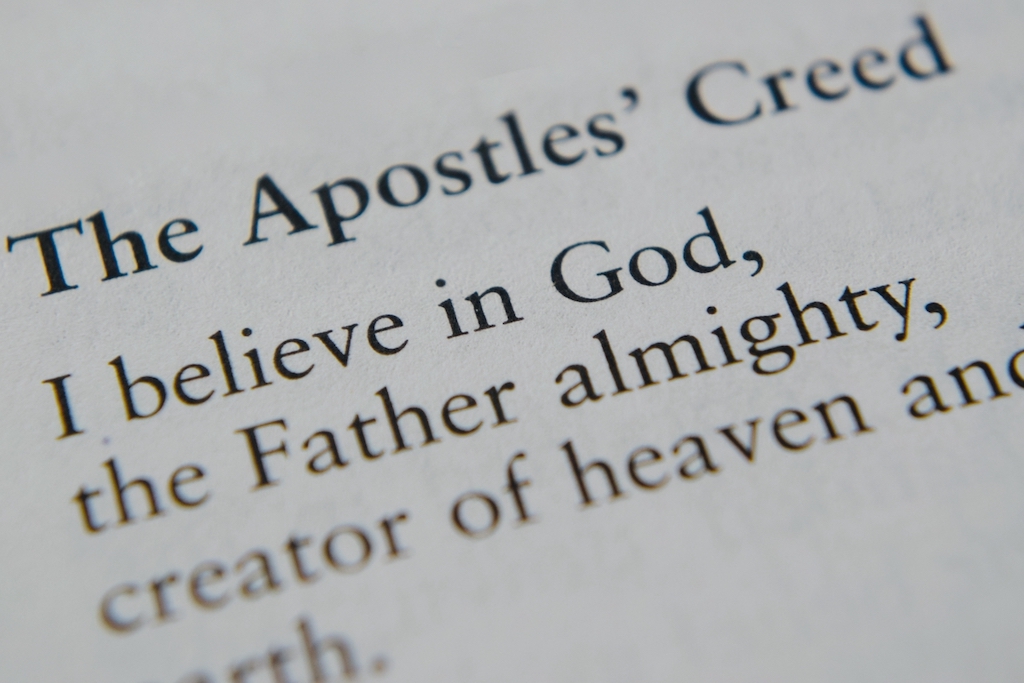“We just believe and teach the Bible here.”
On occasion, you’ll hear this sentiment from well-meaning church planters or pastors when asked what their church believes and teaches. Perhaps a visitor has attended a service or poked around the website. At some point, the question comes up: What does this church believe?
Even if the intent in saying “We just believe the Bible” is good (after all, the Bible is our supreme authority), the answer serves to raise additional questions. Doesn’t every church claim to believe and teach the Bible? Deeper questions follow: What do you believe the Bible teaches? What do you think the Bible says? What distinguishes your church from others
Those follow-up questions can’t be waved off. They matter. Which is why I recommend all churches adopt and publish a statement of faith, whether they come up with one of their own or lean on their denomination or faith tradition’s statement.
Here are five reasons every church should point members and visitors to a doctrinal statement.
1. We are a confessing people
First, Christians are confessors. We not only confess our sins, but we also confess our faith. We confess the name of Jesus Christ.
We can find statements of core conviction in the Bible itself, from the foundational creed of the Israelites (“The Lord, the Lord our God, the Lord is One”) to early statements in the New Testament summing up the person and work of Christ. A statement of faith tells church members and guests: We are a believing people. We believe things here. We believe this to be true.
2. We are a rooted people
We are not the inventors of Christianity. We are inheritors.
And yet many Christians today don’t think much about the Church’s history beyond the story of their own local congregation. The historical theologian Timothy George was known for opening his church history classes by telling his young students, “I’m here to tell you that there was someone between your grandmother and Jesus, and that it matters.”
The Apostles’ Creed was developed initially as a baptismal formula, something the convert would recite in the baptismal waters. The Nicene Creed, first formulated in A.D. 325 and expanded A.D. 381, is affirmed even today as the Trinitarian core of the Christian faith all over the world. When we recite these words or point people to them, we demonstrate our rootedness in history.
The ancient creeds showcase the personal nature of Christian faith, drawing our attention to God—the Father, the Son and the Holy Spirit. They are brief, universal statements that focus on God. Over the centuries, many church traditions have adopted particular “confessions of faith” that express in greater detail the beliefs of their faith community. Creeds are brief statements on the nature of God, designed for memorization and recitation in the church. Confessions are longer statements that draw out additional implications of the faith as understood by smaller groups within the Church.
Statements of faith remind us of our past. They root us in something bigger than ourselves. They connect us to the church throughout history and the church around the world. We are not adrift in a sea of now, tossed around by contemporary currents.
3. We are a unified people
Statements of faith can go a long way in helping preserve the unity of the church. By focusing on the essential aspects of the faith and the distinctives of a particular faith tradition or community, the congregation can know, without a doubt, what to expect. By focusing on the core of the faith and the commonalities of a particular church, the statement of faith can help keep unity.
Sometimes it’s what is not in a statement of faith that says as much as what is included. Second or third-tier issues that often cause division get demoted as lesser issues, not worthy of being included in the faith statement. This means some theological disagreements, issues of political prudence or areas of difference don’t have to threaten the unity of the church. By keeping the main thing the main thing—seeking to “maintain the unity of the Spirit in the bond of peace”—Christians learn that there can be unity without uniformity.
4. We are a witnessing people
In today’s cultural climate, it matters that Christians feel the weight of witnessing to the faith once for all delivered to the saints. We are witnesses who share the gospel and who seek to bring others into the Christian faith.
A statement of faith gives us confidence, so that we can say with our brothers and sisters, “Here is where we stand.” A statement of faith also gives clarity to the outside world. We say what we believe, up front. Transparency matters.
On some of the most pressing issues of the day, especially related to marriage and sexuality, a clear and concise statement of faith ensures that neither church members nor guests are confused as to what we teach. There’s no bait and switch. Clarity is kindness.
5. We are a future-oriented people
Finally, a statement of faith points us to the future. Our desire is to pass on the faith to the next generation, undiluted and uncompromised. Doctrine matters. What we believe matters. What the church teaches matters.
A statement of faith can keep us from drifting. It’s no guarantee, for sure, as many congregations have wound up unmoored from their heritage even with a doctrinal standard they claim to uphold. But the posture of being a confessing people, returning again and again to the essential beliefs that we promote and proclaim, is one of the many ways we can guard against theological error and push toward a healthy future for the church.
Published March 29, 2023




